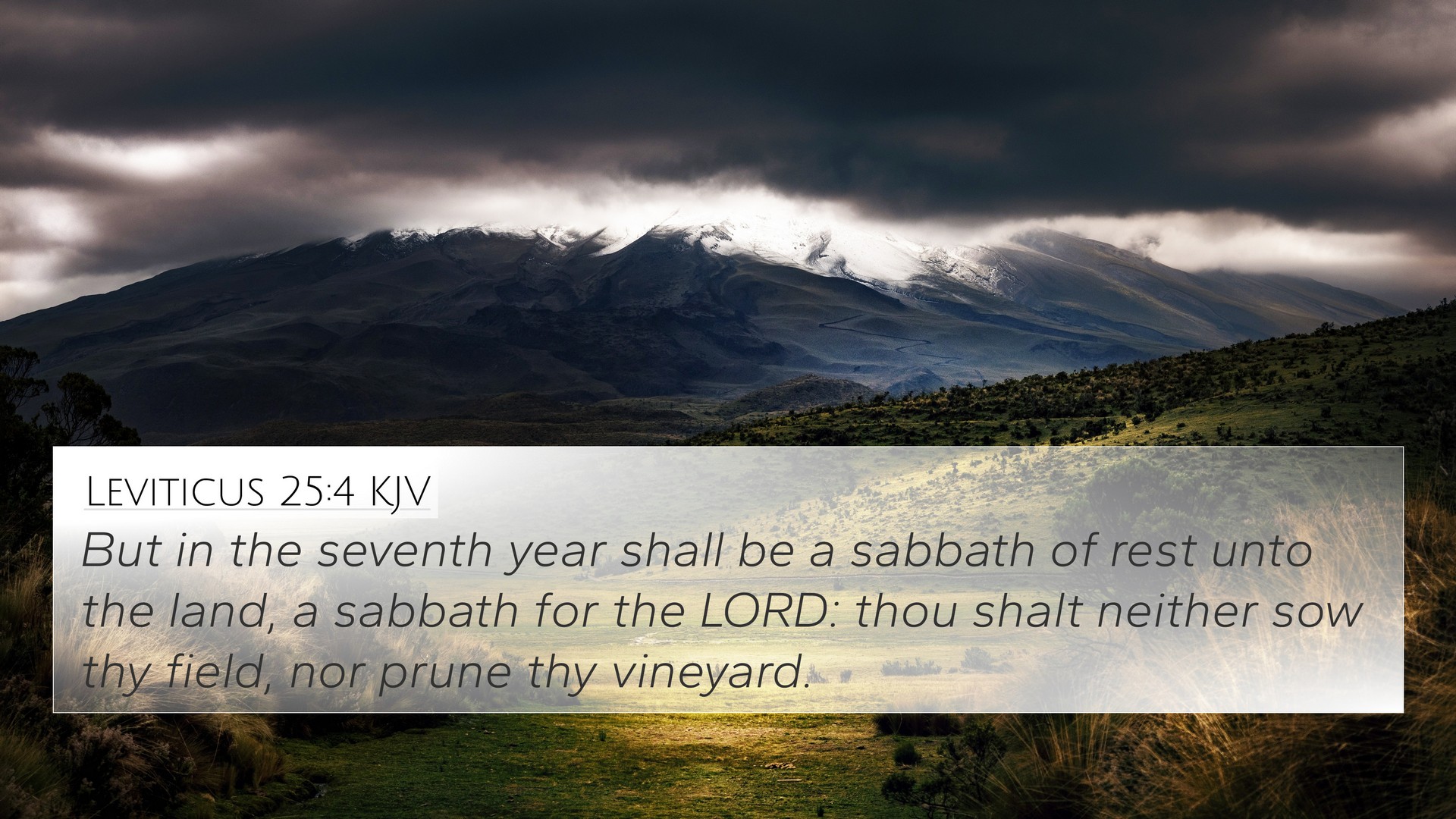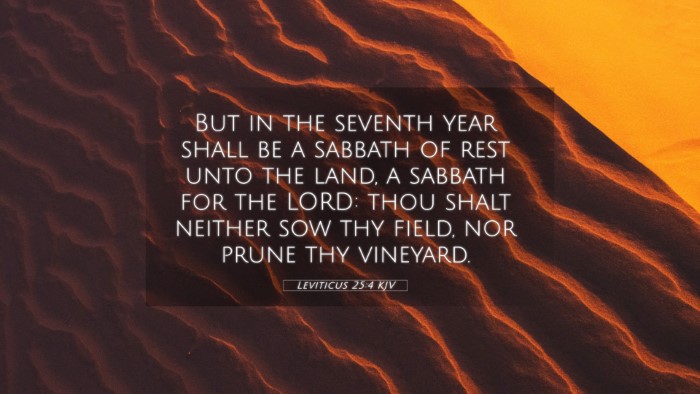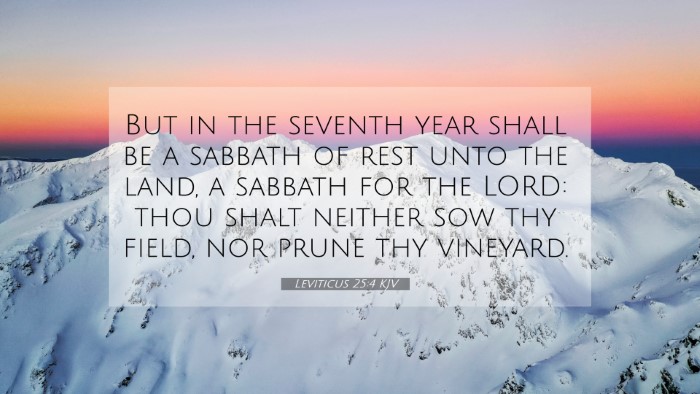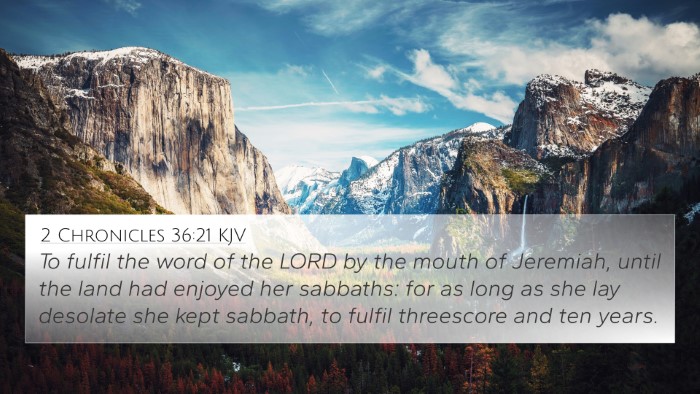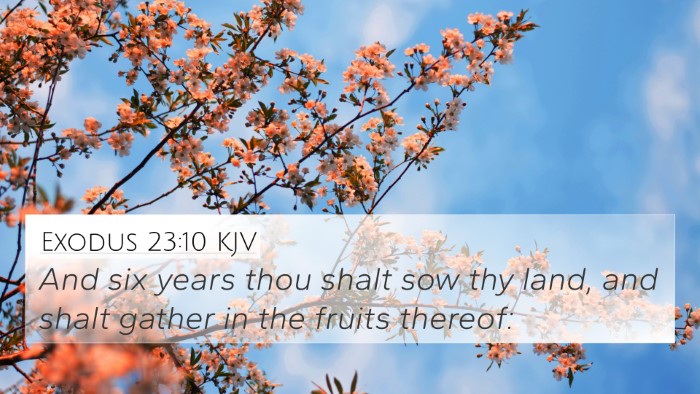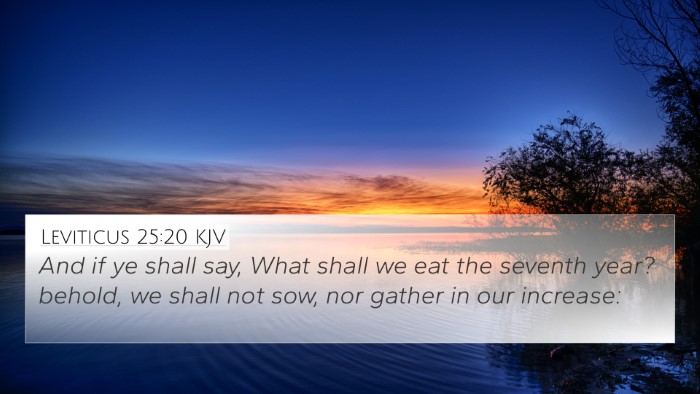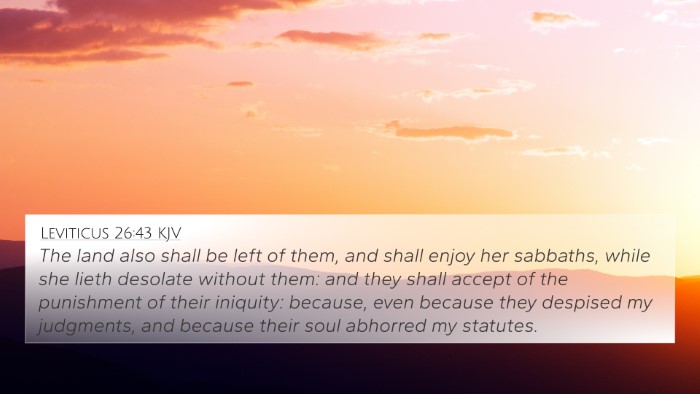Understanding Leviticus 25:4
Leviticus 25:4 states:
“But in the seventh year shall be a sabbath of rest unto the land, a sabbath for the LORD: thou shalt neither sow thy field, nor prune thy vineyard.”
Meaning and Context
This verse is part of the laws concerning the Year of Jubilee and agricultural practices laid out for the Israelites. The emphasis here is on the Sabbath rest for the land, highlighting the necessity of allowing the earth to rest, akin to the Sabbath rest given to humanity.
Theological Insights
According to Matthew Henry, this command demonstrates God's sovereignty over the earth and stresses the importance of trusting in His provision. The enforced rest of the land symbolizes a deeper spiritual rest and reliance on divine sustenance.
Albert Barnes notes that the cessation from sowing and pruning every seventh year acted as both a restorative practice for the agriculture of the land and as a test of faith for the people of Israel. This period allowed the land to replenish its nutrients and maintain its fertility.
Adam Clarke elaborates that this practice also served a social purpose, ensuring that the poorer members of society could have access to the produce that grew during the sabbath year, thereby promoting equity and community welfare.
Cross-Referencing Biblical Texts
Leviticus 25:4 can be cross-referenced with several other verses that share similar themes or directives regarding rest, sabbath, and the treatment of the land. Below are some key examples:
- Exodus 20:10-11: Discusses the Sabbath and connects the act of resting to creation.
- Deuteronomy 15:1-2: Addresses the release of debts, which emphasizes the theme of rest and renewal.
- Leviticus 23:3: Highlights the significance of the Sabbath as a holy convocation.
- Matthew 12:1-8: Jesus speaks of the Sabbath's purpose, asserting that mercy is greater than sacrifice.
- Mark 2:27: Reinforces that the Sabbath was made for man, not man for the Sabbath.
- Hebrews 4:9-11: Explores the spiritual sabbath that remains for the people of God.
- Genesis 2:2-3: Describes God resting on the seventh day, establishing the pattern for humanity.
Thematic Connections
This verse highlights crucial themes within the scripture that extend beyond the immediate agricultural laws. Among them are:
- Rest: Demonstrates the divine principle of pausing for recovery and reflection.
- Faith and Trust: Encourages believers to trust in God's provision during periods devoid of agricultural work.
- Equity: The allowance for the land’s natural produce to be accessed by all reinforces communal responsibility.
Practical Application for Believers
Believers today can glean from this verse by recognizing the need for rest in their own lives. In a world filled with constant demand for productivity, creating space for rest mirrors the heart of God in His creation and His care for His creation.
To further explore connections between Bible verses, consider using tools for Bible cross-referencing. Such tools can reveal underlying themes and relationships that can enrich personal study or thematic sermons.
Cross-Reference Resources
- Bible Concordances
- Bible Cross-Reference Guides
- Cross-Reference Bible Study Resources
- Comprehensive Bible Cross-Reference Materials
Conclusion
In summary, Leviticus 25:4 acts as a reminder of God’s design for rest and trust. As believers seek to understand the deeper meanings of scripture, they can utilize cross-referencing methods to discover similarities and additions found throughout the Bible, thus enriching their spiritual journey.
Further Study
For those interested in the themes presented in Leviticus 25:4, consider exploring other Bible verses that support or relate to its core message. This may include:
- Exodus 23:10-11: Addresses the sabbatical year principles.
- Psalms 46:10: "Be still, and know that I am God."
- Isaiah 58:13-14: Encourages delighting in the Sabbath and its spiritual importance.
By comprehensively studying this verse and its connections, believers can deepen their understanding and appreciation for the richness of scripture and its application in their lives.
